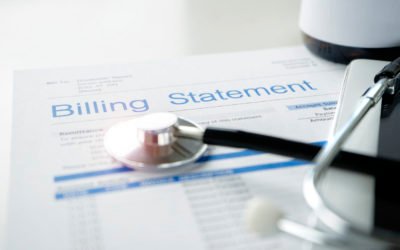Dental billing is an important part of any dental practice. There are many differences between medical bill and dental billing. Unlike medical billing, dental billing is a more specialized approach. Therefore, it’s important to have a billing expert who understands the specificities of dental offices to ensure your practice is efficient and profitable and offers transparent and pleasant experiences for patients.
Here are some important things to understand about dental billing and coding.
Dental Codes
Dental codes are different than medical codes. The text used to code in dental practices is called the Current Dental Terminology, or CDT, which was published and updated by the American Dental Association.
The CDT is supposed to comply with the HIPAA regulations and is updated annually. It covers all the bases, from dental service reports and health benefit plans to payments.
Claim Forms
Claim forms are critical in any business, including dental practices. It is important to fill out claim forms completely and correctly to ensure you get paid. If this isn’t done, you can see a delay in getting paid as well as a loss of revenue if revised billing is not done in a timely manner. The claim form most commonly used in dental billing is called J400. It asks for the following data:
- Information about the patient’s dental insurance
- Dates of dental service
- Identifying information of the provider
- Service charges
- Location of where services were provided
Dental information of the patient is also included, such as:
- Nature and specific place of the treatment
- Patient’s tooth system
- Specific number or letter of tooth
- The surface of the tooth
- More details about the dental procedure
- Information about lost teeth and other medical conditions
Electronic Dental Billing
One of the things to consider with dental billing is if you want to go for paper or electronic claims. Paper claims have been used for many years. You can attach medical records and other necessary documents and send them to insurance companies through the mail. Over half of dental claims are in paper form.
However, technology allows you to efficiently send bills electronically. This helps you keep an electronic record and shortens the time it takes for insurance companies to receive bills. Many insurance companies require electronic billing. Therefore, you should have a system in place that accommodates some sort of electronic billing, if possible.
Type of Insurance Matters
Many people have insurance that covers the cost of their dental services. It’s important to verify insurance coverage and ensure the patient’s plan covers the specific services you provide. This should be done before you provide the treatment or service to the patient. Doing so will make your billing more efficient and effective. It will also save patients from surprise bills when their insurance company refuses to pay their bills.
Smoother Dental Billing and Coding Processes with Prospa Billing
If you want to learn more about dental billing, contact the experts at Prospa Billing today. We are here to help streamline your billing processes, so you can focus on your practice and patients.
For more information or to schedule a consultation with our billing specialists, call us at (844) 663-3686.




0 Comments